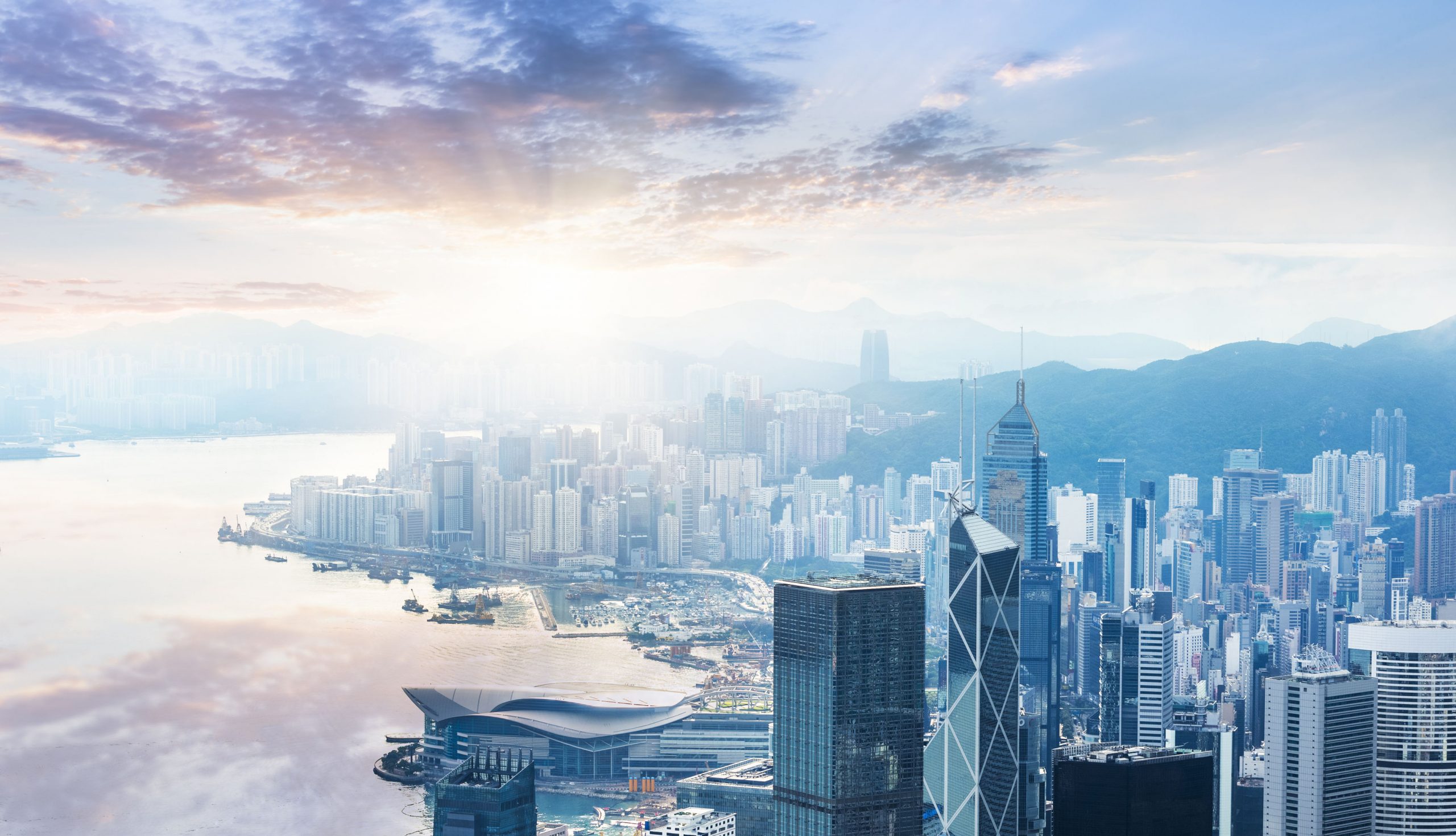Whether you are sailing on a yacht in Phuket, a junk in Hong Kong, swimming in the Pacific Ocean or simply watching the rain drops descend on your window pane, water has much to impart in mounting successful events and conferences.
In Chinese Taoist thought, the element represents wisdom, intelligence, flexibility, softness and pliancy. It is positively associated with calmness, stillness and serenity.
Companies normally try to invoke the characteristics of water when hosting events as they strive to achieve that effortless vibe that allows their guests to go through each stage of the programme without experiencing jarring transitions.
An event that “flows” smoothly, however, is a product of meticulous planning where organisers go through each item of the programme with a fine-toothed comb.

Pre-planning is key
American guru on event planning and author of The Complete Guide to Successful Event Planning, Shannon Kilkenny says pre-planning is the essential key to an excellent event.
In his book, Kilkenny details a few important pointers for an event to go swimmingly well: “Starting the planning process early enough to ensure that all aspects of your meeting have been well considered and thought out is one way to prevent the ‘unknown’ from happening. I like to make sure that all of my staff and volunteers know the entire game plan well before the event begins. A well-written agenda with dates and times, locations, names and important phone numbers is indispensable. Knowing who will be where and at what time is vital.

“If something does go wrong, the right phone number for the right person who can fix the issue is paramount. Also, having the right person for the job to begin with whether it is a volunteer or a staff member creates faster solutions. Make sure your people are qualified to do their specific tasks and they can work under pressure and have the ability to make good solid decisions in a timely manner if something goes awry.”
Paul Cook, international strategic advisor to Meeting Professionals International UK Chapter (MPI) and creator of the business events website www.planetplanit.biz, cannot emphasise enough the importance of thorough planning. “The key is to put yourself in the position of the delegate who will be coming to your event and then work through their experience every step of the way. In other words, experience the event from their point of view.”
He suggests asking question like: Does it make sense? Is there enough time for delegates to move comfortably from room to room? Is there enough time for reflection on what is being learned at the event? It is important not to miss a beat, or a minuscule detail, so he extensively addresses all of the tips and tactics in his online oracle for all
event planners.

To ensure that the programme flows smoothly, Cook highlights some important details to consider. “It is best to allow some slippage time in the schedule just so you can deal with any slight delays. Always make sure you have enough time for moving people from one part of the venue to the next. It is always surprising how long it can take, especially when people start talking. On the panel front, you need to have a strong person in charge who will make sure that speakers take their allotted time. In fact, if a speaker runs over the time limit, it will begin to affect the time for the next speaker. Dealing with the timing needs someone who is strong but diplomatic enough to move the event along.”
One oft-overlooked detail is the timing of meals. Cook points out: “Serving meals and the time it takes is always something to discuss in detail with the food and beverage manager and caterers. Let them know if your event is running on time and again be clear on your expectations of them and their service."
Bruno Simões, executive director of DOC DMC and smallWORLD Experience who has 12 years DMC experience in Macau and Portugal, takes another approach to preventing problems. “I play devil’s advocate. I get the rundown and try to tear it apart. I challenge every detail by asking: ‘Have you thought about this?’ or ‘What if we do this?’” By being impartial and not too involved with the details of the event, he can objectively interrogate his team, enabling them to efficiently prepare for an event.
Expect the unexpected
But no matter how much preparation you do, surprises like a volcanic eruption, earthquake, flight delays, a late speaker or sick key players at the event are all likely to happen.
Corporate events are as diverse as the people planning and attending them. While these experts may have their own way of staging an event, they would agree on one thing: Expect the unexpected.
It is a lesson Cassandra Rudge, business development manager of PUNCH! Events and Promotions in Singapore learned in putting together her first major event. “It was family day at Downtown East. We were deciding on the number of chairs to provide and the client advised us to double the amount expected. We thought he was uptight, but when more people turned up than expected, we realised no matter how much you prepare or how well you think things are going to go, you must anticipate the worst and prevent it.”
She adds that in the case of force majeure, nothing really can be done. Just make the formal apologies and be on your way. But when flights get delayed or speakers get sick for instance, you need to resolve the situation with effective decisions. “Some things cannot be helped but they can be mitigated. Feeling hopeless and fearful will just make the bad situation worse.”
Quoting Christian minister Edwin Louis Cole, Rudge says: “You don’t drown by falling in the water; you drown by staying there.” When catastrophes occur, think plan B. If a speaker has met an accident or a flight gets cancelled due to a hurricane, you must come up with the second-best alternative.
Meanwhile, Cook believes “events without risk just do not happen”. This author of the book Risks and Events points out the ultimate key for an event to flow smoothly is excellent communications. He says: “Communication is very important to keep everyone aware of what is happening, even if it is bad news that is being given. It is much better to deliver news rather than allowing people to make their own, often incorrect assumptions.”
Simões of DOC DMC agrees that problem solving and offering solutions are central to executing flawless events. But it is important to be mindful of the empowerment the client gives you. He says: “While you are hired to provide the solutions, you must always be adaptable to the needs of the client.”
Author Shannon Kilkenny nicely sums up the best way to go with the flow and be fluid like water: “Every planner knows, no matter how prepared you are, something, even something small, will go wrong at each and every event. It is how fast the solutions are discovered and the problem resolved, that makes a good event planner into a great one.”
Keeping your focus
A pool of water, the sound of water gently trickling down or a water fountain all relax and bring us peace. But how does one remain serene when everything seems to go wrong?
The secret is keeping a calm mindset. Experience is the best teacher. Cook says: “Remaining cool and collected is something that comes with experience for many people. The important issue is to keep in mind what the key priorities for the event actually are. With so many different elements to events and so many different people all requiring some attention it can be easy to become distracted from what is really important, so always keep looking at the bigger picture. Keep the end in mind and just weather the storm.”
His many years of organising events have taught him that little acts help. Try pausing and taking a deep breath before dealing with the issue. It also helps to smile as that eases the strain or worry that can appear on our faces. Energy begets energy. Stressful and angry energy is contagious, but so is a relaxed, peacefu, positive vibe.
Priming the Well
To draw water from a well, one must prime the well pump so that a constant flow of water is available whenever we need it. It is easy for event planners to be burned out and depleted from the intense demands of mounting event after event. But how can event planners prime the well for fresh ideas?
Cook’s strategy is to look at the unified drops coming together to form one ocean. He says: “I like to get the team as fully involved in the creation of the event as far as possible. Having the broad goal of what we want to achieve and then encouraging people to come up with ways of how it can be achieved has worked pretty well. Always know what the ultimate goal has to be and then work back from there. I am always impressed by the creativity that is in people and it is just a case of bringing it out of them. There has to be some energy around the event or else it will fail.” Like a wave, Cook wishes to build his momentum to peak to greater heights. “I strive to continually improve on what we have delivered in the past,” he says.
Simões, on the other hand, channels the energy and vastness of the open seas: “I always leave room for risk taking, enabling
my team to come up with new ideas.” Aware of how permeable his team and their energies are, he always leads by example. He adds: “It is always by example that they learn. It is in the same light that unwilling participants become enthusiastic players in your programme.”
“I play devil’s advocate. I get the rundown and try to tear it apart. I challenge every single detail,” says Bruno Simões

“Communication is very important to keep everyone aware, even if it is bad news that is being given,” says Paul Cook
“Every planner knows, no matter how prepared you are, something, even something small, will go wrong at each and every event,” says Shannon Kilkenny
LIQUID INSPIRATION
Taking elements of water and bringing them to your meetings, conferences and conventions may have lasting positive effects on your participants.
Water Setting – On a recent conference on the Mekong River, the power went off in the hotel and the curtains had to be drawn aside. The windows opened to a stunning view of the mighty river. It was about 4pm. Everyone was weary and tired. But the mere sight of the river refreshed the group. Consider wide-open spaces, rooms with views of the ocean, river or sea, or even adding water fountains near the refreshment area.
Refresh – While sitting in a meeting or listening to speakers may not be physically demanding, it can be draining. People’s preferences for water vary tremendously. Offer a diverse range of beverages from still, sparkling, oxygenated and even flavoured water. Make sure you have it available at different temperatures. Some people prefer ice-cold water to quench their thirst, while others opt for warm water or room-temperature refreshments.
Water Stations – Instead of providing bottled water for participants, why not provide water stations? Shannon Kilkenny’s biggest, most popular and easiest way to be green in conferences was to introduce water stations. Her intention was to decrease the plastic bottles used. In the process, she created a place for people to congregate to meet and network. Getting water from the same source also gave the participants a shared experience.


